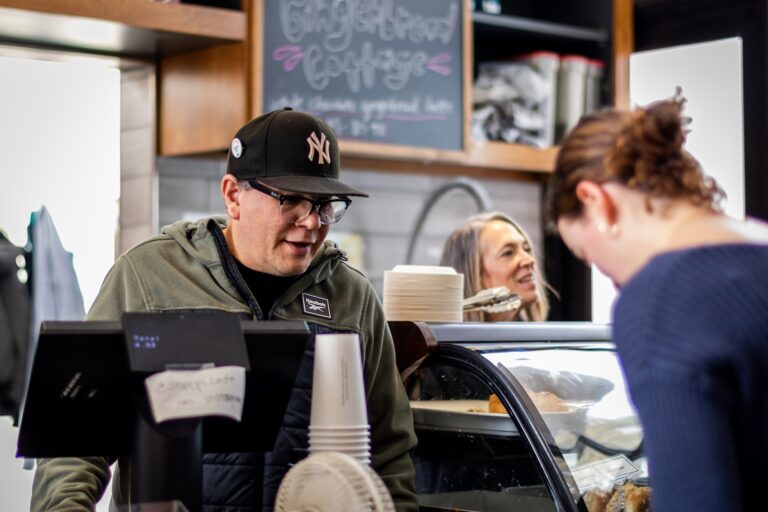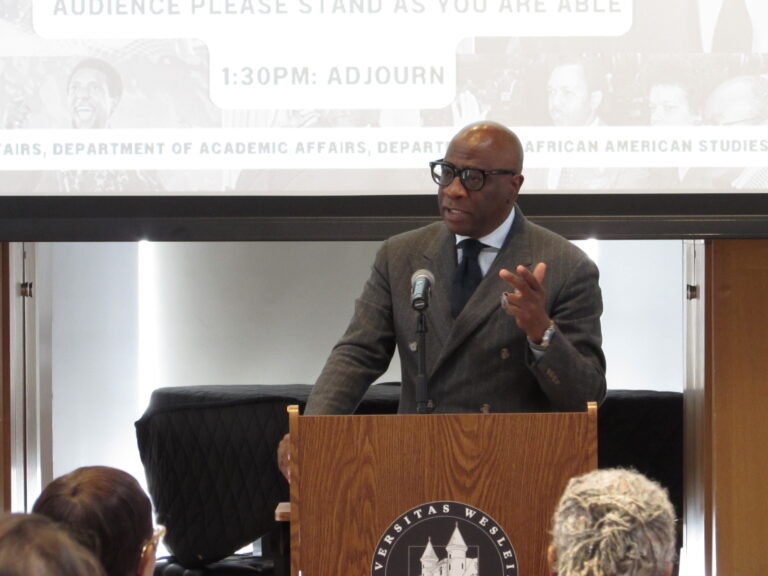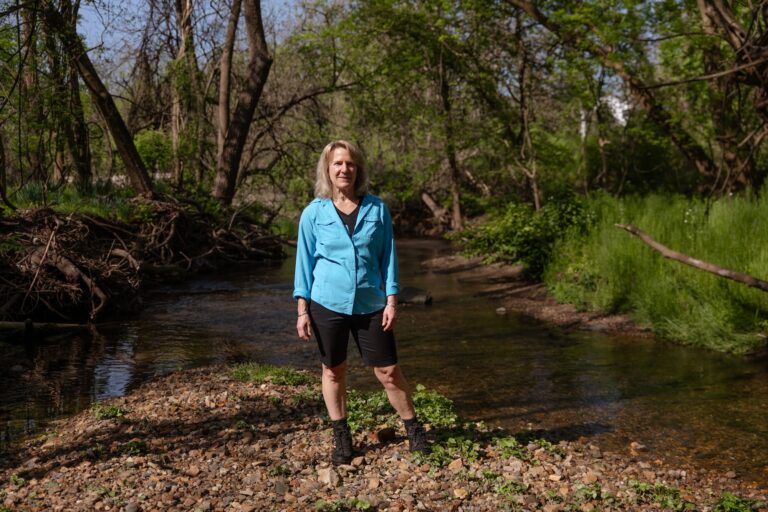Students Earn Peace Grants
This summer two University students, Claudia Kahindi ’18 and Olayinka Lawal ’15, received a Davis Projects for Peace grant allowing them to travel to Kenya and start an English education program.
Grants are awarded through the Davis United College Scholars Program to students who design grassroots projects aimed toward ending conflict and promoting peace. The $10,000 grant can be awarded to college students nationwide. The money must be put toward a grassroots idea, designed and created by the applicant. Since 2007, at least one University student has been awarded this grant every year.
The grant pays for all food, transportation, project materials, and all other expenses, but there is no stipend for the work that students do. This means that every project is entirely volunteer-based.
Kahindi and Lawal’s project breaks down into three components: a six-week program for students in Kenya, continuous classroom exposure and language experience, and a transnational exchange with the local Middletown elementary school. Overall Kahindi and Lawal reached 108 kids throughout the time they spent in Kilifi County.
“The experience was empowering, informative, challenging and definitely worth it,” Kahindi said. “I learned a lot from interacting with the professional teachers, my work force, and mostly the 8 to 11-year-olds.”
For Kahindi, traveling to Kilifi County meant returning to her hometown, but coming back as a volunteer was a different experience.
“Even if I also went to the same public primary school, I was surprised by how much the project transformed my thinking,” Kahindi said. “I also realized the need in my society and my role in leading the change.”
The classrooms at the school focused on incorporating English-language activities into the school day. Each week covered a different theme, and kids were exposed to sports games on the beach, trips outside of the school, watching movies, and reading storybooks.
“This is a unique and generous grant for young people,” said Director of the Patricelli Center for Social Entrepreneurship Makaela Kingsley. “It empowers college-age change makers to execute ambitious projects and push themselves to experiment with their ideas about peace, leadership, and social impact.”
Associate Dean for International Student Affairs Alice Hadler, who has worked with several of the applicants over the years, expressed her appreciation for the grant.
“I really do buy into the idea that its more important to support the people who come up with these ideas than to have any inflated idea,” Hadler said. “So whatever comes out of it has to be good, assuming it happens.”
The application process consists of writing a proposal, not to exceed two pages, explaining the project in as much detail as possible. Additionally, a budget report must be submitted. Applications for summer 2016 are due in January.
“Students who are considering applying should start thinking about their projects very early in the year,” Kingsley said. “The Patricelli Center is one of the many resources on campus for this, and I look forward to speaking with students who want to learn more.”
Davis Projects for Peace is by no means the only way to receive a grant for social justice. Within the University alone, students can receive PCSE seed grants, University summer experience grants, Brodigan grant, College of Environment grants, and more. Students can also qualify for external grants such as Fulbright, Davenport, and JW Saxe, to name a few.
While the process of applying for such programs may have been daunting, Kahindi and Lawal said they do not regret it.
“By the end of the project, I realized how we take most things for granted, and I think that’s not okay,” Kahindi said. “Things could be better, but one should be grateful if they don’t have to worry about the basic things like education. As students of Wesleyan University, we are all privileged.”
Students say this realization often strikes at the end of such programs. Hadler noted that at the conclusion of the project, students take away just as much as the actual community being assisted by the grassroots projects.
“These programs create game changers more than a changed game,” she said. “What it does for the grantees’ lives seems to be consistently extraordinary.”
Kahindi echoed that statement.
“I feel lucky, motivated, and aware,” Kahindi said. “It is as though the grant opened my eyes into seeing disparities that need to be taken care of. It made me want to do more, but it also made me realize I can’t cure everything, and so I made a [resolution] to work on what I can with all my capability.”







Leave a Reply